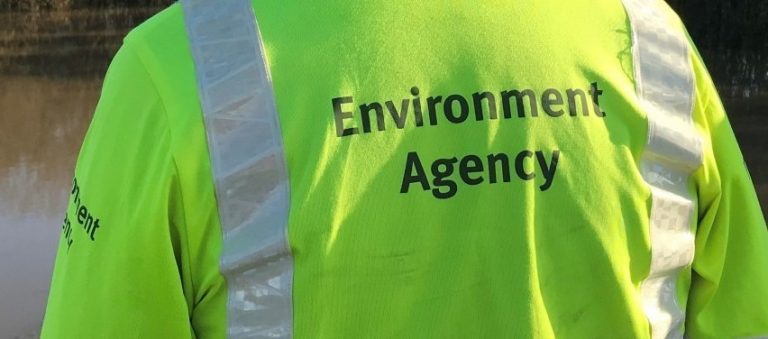Plan now to avoid 2023 drought, Environment Agency tells water companies
Sheffield Chamber completes new-look all women leadership team
Yorkshire door business secures multimillion pound support for growth plans
Yorkshire glazing specialist hits 1,000-tonne recycling milestone
A Leeds-based manufacturer of glass units for windows which feature integrated blinds has saved 1,000 tonnes of post-consumer waste glass from landfill in two years, and instead diverted it into the production of new glass in a scheme which has provided funding of more than £60,000 for local environmental and community schemes.
Morley Glass, which employs 110 people at its factory in Morley, is one of Europe’s biggest manufacturers of double glazed units that have built-in Venetian or pleated blinds, producing an average of 16,000 units every month. These are sold to window installers across the UK.
In 2020, the company invested in reducing its own process waste and providing a post-consumer glass recycling service to customers by installing machinery that could crush waste glass into what is known as cullet. This can be fed directly into the manufacture of new glass which not only reduces needless landfill waste, but it also cuts the volumes of virgin raw materials needed to make glass and saves energy as turning cullet into new glass requires less energy.
The scheme, which is run in conjunction with international glass manufacturer Saint-Gobain Glass, who make window and door glass at their factory in Eggborough near Selby, is continuously audited. This means Morley Glass can see exactly how much waste glass is being collected and the benefits it delivers.
The data shows that in two years, the amount of glass cullet produced by Morley Glass is equivalent to the weight of 150 elephants, saving around 325,000kg of CO2, as every tonne of glass cullet prevents 300kg going into the atmosphere. Over 920,000kg of sand, the main raw material for glass, has also been saved and the overall energy saving to Saint-Gobain Glass is calculated at 541 ‘energy years’ – that is the energy used by an average UK household in 12 months.
In addition to saving resources and energy, the recycling scheme has another important benefit for communities in West Yorkshire. All the money raised by the sale of the recycled glass material to Saint-Gobain Glass goes into a fund set up by Morley Glass called GreenVision.
This offers £500 one-off grants to charities, individuals and community groups who are located in West Yorkshire and dedicated to providing environmental or social improvements in their local area.
The type of initiatives that GreenVision can support is extremely diverse. Amongst those who have benefited to date is Roundhay School, who used their grant to set up a system for collecting school uniforms that children have outgrown, so that parents of children newly transferring to the school can take anything they need free of charge. And at Longroyde School in Brighouse, teachers accessed GreenVision funding to support a project for the children to create and cultivate green spaces as part of an ‘Easter Garden Project’.
Ian Short, Managing Director of Morley Glass, said: “What started out as a simple business improvement idea has snowballed into an initiative that is delivering far-reaching benefits at a time when environmental and social sustainability have become priorities. We are thrilled to reach our 1,000 tonne milestone in just two years, which clearly demonstrates how popular the recycling service is with our customers who can save money on waste disposal costs too.
“And of course, the more waste glass we are able to collect and process, the more support we can provide through GreenVision to local people and groups who are giving up their time to improve their local environment or deliver social benefits. Applying for a grant is quick and easy, so if this is you, please go to our website and submit a GreenVision application today!”
Morley Glass is also offering a free collection service to any window installer located in the Leeds area who would like them to turn their post-consumer waste glass into funds for the community. This can be arranged by calling 0113 277 8722.
Northern Mayors meet Transport Secretary to level with Government on rail chaos
Ministers must act to end months of rail chaos that is causing misery for millions across the North, West Yorkshire Mayor Tracy Brabin said today, ahead of crunch talks with the government (30 November).
Ms Brabin will “level with” with Transport Secretary Mark Harper when they meet today and say that “levelling up” at a bare minimum means ensuring that Northerners can get to work and education opportunities.
Speaking ahead of the meeting, West Yorkshire Mayor Tracy Brabin said: “Enough is enough – the Transport Secretary has promised to get a grip on this crisis, and we welcome that. But the people of the North need more than warm words – we need a concrete plan that will get our rail network back on track.
“This chaos is having a devastating impact on the Northern economy and our attempts to rebuild from the pandemic, while we try and support our communities against the cost-of-living crisis with record levels of inflation.
“The Secretary of State is the person who can step in and has a fresh opportunity to help solve the problem, and that’s exactly what we’ll be telling him today.”
Today’s talks come after the Mayor of West Yorkshire convened an emergency meeting last month, which brought together the Metro Mayors of Greater Manchester, Liverpool City Region, South Yorkshire and North of the Tyne. The Mayors – who represent nine million people across the North of England – agreed a joint action plan and demanded a meeting with the new Transport Secretary Mark Harper.
The Northern Mayors called on Mr Harper to get an urgent grip of the situation and urged the minister to get operators and unions round the table to get a deal done on rest day working and to put Transpennine Express on a six-month probation to raise performance before its contract is up for renewal in May 2023.
Rail operators in the North have been cancelling thousands of journeys – leaving passengers unable to get to jobs, education or see their families. Some cancellations are made at the very-last minute, leaving commuters stranded on platforms and stations, and thousands more journeys are experiencing shocking delays with trains sometimes up to an hour late.
The Mayor is also concerned about suggestions that rail operators – already failing to deliver reliable services – have been asked to make savings of 10% to operating costs. These cuts will have a far more drastic impact on services in the North than in London and the South East which enjoys much more regular services.
Plans on track to reopen South Yorkshire’s ghost railways
Willerby reorganises and creates gender equality on exec team and operating board
Firms asked to look at changes to Gate Burton Energy Park plans
Mike Rutgers, Development Director at Low Carbon said: “The minor nature of the changes does not have any material impact on the proposals we consulted on over the summer, but we’re keen to give people living near to the additional areas the opportunity to provide their views and comments on the changes.
“Our next steps will see us continue to refine the indicative Order Limits for the project in response to comments we receive during this stage of targeted consultation ahead of submitting our application for a Development Consent Order to the Planning Inspectorate.
This is likely to be the last time Low Carbon consults on its proposals for Gate Burton Energy Park before submitting its DCO application to the Planning Inspectorate. However, people will still have the opportunity to contribute to the development process.
Anybody wanting to find out more and submit their views can go to the project website – www.gateburtonenergypark.co.uk – to submit their feedback to the consultation











